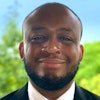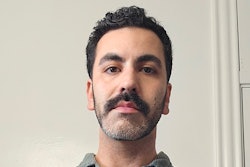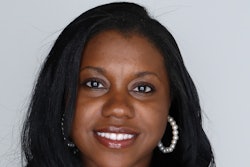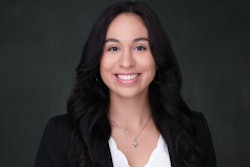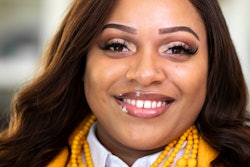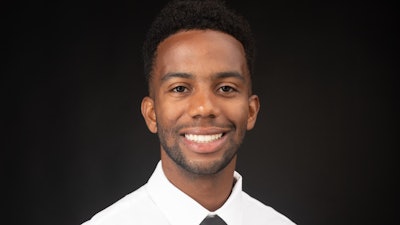
“He wants to research methods to improve the evaluation of a student-athlete experiencing concussion,” says Karr. “He’s interested in a specialty area in our field called sports neuropsychology.”
His doctoral program at UK is in clinical psychology with a neuropsychology concentration. The topic of Ingram’s master’s thesis was “The Sport Concussion Assessment Tool: A Multidimensional Symptom Model for Detecting Elevated Post-Concussion Symptoms.” He will complete his doctoral coursework next year and envisions his doctoral dissertation focusing on network modeling with concussion symptoms and concussion assessment data in collegiate athletes. Ingram uses data from the CARE (Concussion Assessment, Research and Education) Consortium for a lot of his research, which has data from the NCAA and Department of Defense.
“Athletics are a really important entry way and connection to higher education, especially for people from minoritized backgrounds,” says Ingram. “When you look at a lot of the brain injury research, student-athletes have a lot of unique considerations for their care when they’re recovering from concussions. There is the actual brain injury itself, but then you talk about being removed from the classroom, but also removed from your sport, teammates, and things that are probably closely tied to your identity.
“There can be broad, sweeping consequences for young adults that are in the stage of setting themselves up for the rest of their lives.”
Ingram’s goal after completing his doctorate is to be a clinician/scientist and have a position in an academic medical center, where he will see patients and conduct research. A sports neuropsychologist is part of an athlete’s care team, evaluating what may be in an individual’s way in terms of returning to sport and regular life activities. That also includes research, which can, in turn, prove beneficial in a clinical setting.
